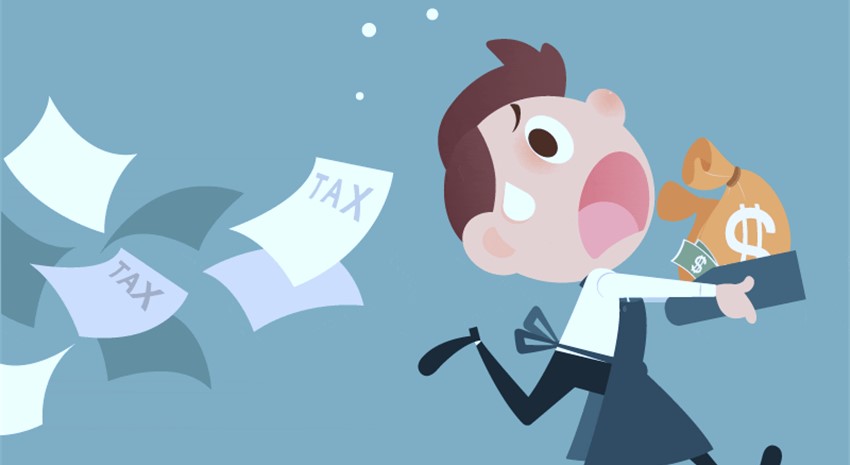Sales Tax Is No Laughing Matter – But It Has Its Moments

A colleague of mine from Avalara once asked me, “Did you ever hear the joke about sales tax compliance?”
“No,” I replied.
“That’s not surprising,” she said. “There isn’t one.”
Anyone who has ever dealt with sales taxes can appreciate that few things in business are as dull, as complex, or as important as sales tax compliance.
Still, I can always count on our friends at Avalara to find the lighter side of a very serious subject.
For instance, cookies in New York are not taxable – but candy is. So what happens when you buy a Twix bar – a “cookie layered with caramel covered in chocolate” (or “cloaked in chocolate”, if you’re the Left Twix)? Do I have to pay sales tax on it or not? The answer is: It depends. According to the New York State Department of Taxation and Finance: “Are you buying them as candy or as cookies?”
Or that in Iowa, the milk chocolate version of the Milky Way is tax exempt because it contains wheat flour and “Candy shall not include any preparation containing flour…” By the way, the Midnight Bar version is not tax-exempt.
While some of these tidbits of sales tax trivia can be kind of funny (like the fact that, in Maryland, hot buttered popcorn is taxed differently than buttered popcorn), the serious undercurrent is that sales tax laws are different from state to state and even from town to town, and enforcement is heating up. With more and more local and state governments facing budget shortfalls, they look to sales tax enforcement as one place they can recoup some of their lost revenue.
Avalara offers some good advice to help companies avoid, or at least survive, an audit by state taxing authorities in their Sales Tax Survival Guide, including:
Determine which jurisdictions can apply sales tax on your business. Sales tax is not simply determined based on where your primary store is located. Stores that operate in several municipalities, across state lines, or on the Internet, may (or may not) be subject to sales tax compliance according to nexus rules. Businesses that have a substantial presence in a state, such as holding a business license or establishing a headquarters, are required to collect sales tax and remit the funds back to the government.
Know what products are taxable. Most grocery items are not taxable, but prepared food items are. And most services are not taxable in most states, either. But there are exceptions: In New York City, a donut or bagel is not taxable if eaten on the premises of the establishment where it is purchased, but if it is placed in a box and taken outside, it is taxable. And Ohio has reclassified dry cleaning services from being tax-exempt to being taxable.
Apply the correct tax rate for the jurisdiction. Don’t mistake postal ZIP codes for municipal jurisdictions. ZIP codes are used by the US Postal Service for efficient delivery of the mail and may or may not accurately reflect municipal boundaries. You must comply with the state, county, and city boundaries to arrive at the proper sales tax rates for each of your stores.
Collect the appropriate sales tax from your customers. Not all your customers must pay sales tax – some individuals and businesses are exempt (for example, businesses that are buying your product for resale to another party). However, to be exempt, a person must present a tax exempt certificate to you to keep on file. According to Avalara, this is one area where a lot of companies get into trouble, because they either cannot produce these certificates during an audit or the certificates might be out of date.
To find out more, download the Sales Tax Survival Guide from Avalara.
And be sure to join us on April 25 when ArcherPoint and Avalara present a free Lunch & Learn webinar, Exemption Certificate Best Practices: Reducing Audit Risk.
